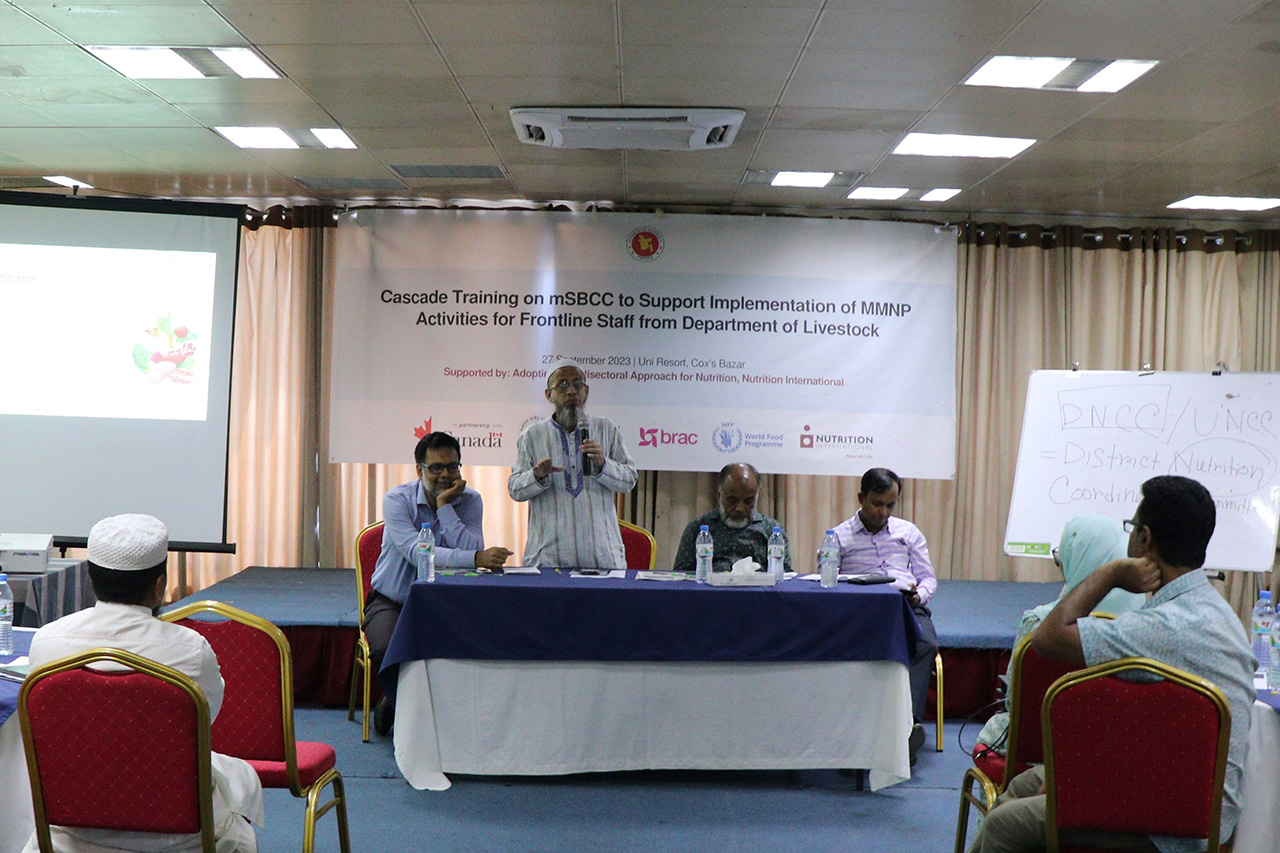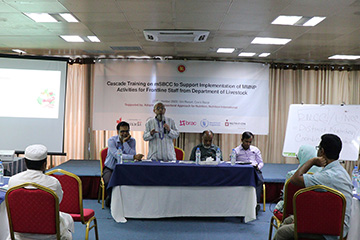
Despite significant progress in poverty reduction, nutrition levels have not improved as expected. According to the World Food Programme's food security monitoring 2023, 36 per cent of the total population of Bangladesh is suffering from food insecurity, and poverty and malnutrition continue to coexist. According to Nutrition International, malnutrition rates are alarmingly high in the Cox's Bazar region, where 29 per cent of children being underweight, and 35 per cent stunted. In this context, there is a call to raise public awareness about malnutrition.
Speakers presented the above opinions at a training event held on Wednesday (27 September, 2023), at a hotel in Cox's Bazar. The 'Adopting a Multisectoral Approach for Nutrition (AMAN)' project, funded by Nutrition International (NI), is being implemented by BRAC Health Programme. The training was organised to prepare field workers for the implementation of the 'Multisectoral Minimum Nutrition Package (MMNP)' as part of a multidimensional approach to nutrition development.
District and upazila-level government officials, along with a total of 50 field-level workers, participated in the training. Cox's Bazar District Livestock Officer Dr. Sahab Uddin attended the event as the chief guest. Ramu Upazila Livestock Officer, Dr. Asim Baran Sen, Sadar Upazila Livestock Officer Dr. Md. Atiqur Rahman Mia, and BRAC Health Programme’s (BHP) Rural Programme Operations Head Dr. Monowarul Aziz, among others, were also present.
Amit Kumar Malakar, project officer of Nutrition International and Mehnaz Binte Alam, Area Incharge of BHP, were present as trainers.
Cox's Bazar District Livestock Officer Dr. Sahab Uddin said, conveying essential nutritional messages to marginalised population is very important. All field-level workers of the livestock department should work in a more coordinated manner in this regard.
Dr. Monowarul Aziz, Head of Rural Programme at BRAC Health Programme (BHP), emphasised, “Consuming fortified foods is essential for maintaining household nutrition security, especially for poor families. Addressing the multifaceted factors contributing to undernutrition, such as improving dietary diversity and promoting optimal feeding practices, requires a collaborative, multisectoral approach involving government entities, civil society organisations, and the private sector."
The training camp covered discussions on enhancing the nutritional value of food using various ingredients and emphasised the importance of nutrition. Additionally, it focused on enhancing the practical knowledge of the training participants in nutrition development.
AMAN project encompasses a holistic health system, multifaceted measures for nutrition, and the nutrition development of the ultra-poor through Cox's Bazar's social safety net programme. Specifically, it involves working with local governments to improve the health and nutritional status of extremely poor women, children, and adolescents.
The AMAN project aims to improve the delivery of nutrition and gender-sensitive interventions by developing the capacity of government departments and supporting the implementation of Minimum Multisectoral Nutrition Package (MMNP) while ensuring quality multisectoral Social Behaviour Change Communication (mSBCC). Furthermore, it aims to assist in the implementation of the 'Multisectoral Minimum Nutrition Package' (MMNP).









